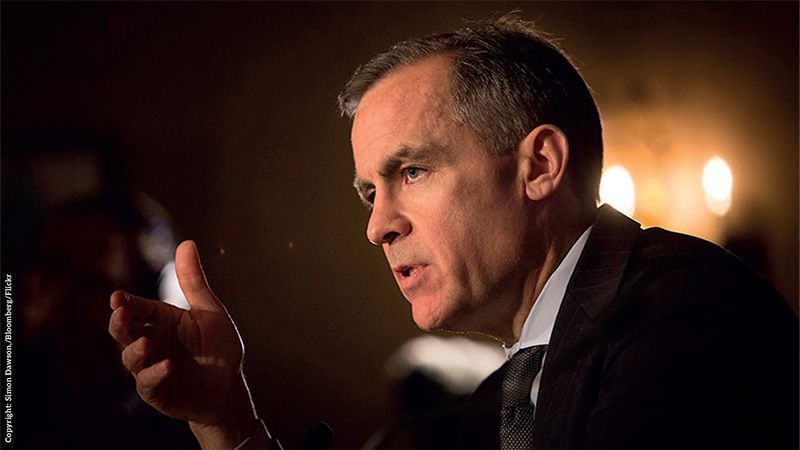The Glasgow Financial Alliance for Net Zero (GFANZ) is set to undergo a significant restructuring in the way it functions and the requirements for participation, as well as a realignment of its key priorities, as more firms exit their key sub-alliance networks.
Going forward, GFANZ will transition to an independent ‘Principals Group’, led by CEOs and leaders from sovereign wealth funds, financial institutions and market participants in countries with longer transition pathways. Thomas Buberl, CEO at AXA, Sergio Ermotti, group CEO at UBS, Larry Fink, chairman and CEO at BlackRock and Hendrik du Toit, founder and CEO at Ninety One are among members of the Principals Group.
Its focus will also shift to closing the investment gap in emerging markets and developing countries (EMDCs), helping to unlock “a more than $5trn a year opportunity created by countries modernising their energy systems and putting economies onto a low-carbon path in the next decade”. According to GFANZ, this will help strengthen growth, create jobs globally and help mobilise the capital needed for the transition.
In a statement, GFANZ’s leadership team – Michael Bloomberg, Mark Carney (pictured) and Mary Schapiro – added the organisation would now allow “any financial institution working to mobilise capital and lower the barriers to financing energy transition to participate”. This is a change from its previous requirement that institutions need to align with the Paris Agreement to take part.
The changes come as Morgan Stanley became the latest to leave the GFANZ sub-alliance, the Net Zero Banking Alliance (NZBA), following Citigroup, Bank of America, Goldman Sachs and Wells Fargo in exiting the initiative.
Launched in 2021, the NZBA is a group of global banks that have committed to aligning their lending, investment and capital markets activities with net-zero greenhouse gas emissions by 2050.
‘A knee-jerk reaction’
Political scrutiny of how investment firms operate has been effective, and, since the US election and Trump’s win, there has been a noticeable cooling effect on major financial institutions, according to Mark Campanale, founder and director of the Carbon Tracker initiative – a civil society organisation which sits on the GFANZ advisory panel. Currently, however, Campanale asserted this seems to be isolated to the US, and he does not anticipate much negative sentiment elsewhere.
“Where we do see institutions peeling away, this reflects a knee-jerk reaction to political pressure, rather than a long-term assessment of the genuine risks that climate impacts will have on banks, pension funds or insurer balance sheets. With major insurance losses announced directly attributed to climate impacts, if anything, institutions and regulators need to be working together more to manage and contain climate impacts on markets, not less.”
Further, Campanale noted many of those banks peeling away have announced their own individual climate commitments, including around green lending.
“Will these disappear? This is to be seen in future years, but I’d be surprised if much really changes, because banks see the opportunity in backing new green infrastructure. However, what this might represent is ‘greenhushing’ by departees – pulling back from ‘public’ commitments but proceeding with their targets anyway.
“We have all the key technologies we need to solve the climate crisis, particularly in power and transportation. To hit climate goals is just a matter of scaling, and GFANZ is looking closely at how to mobilise capital to the global south in particular, which is absolutely the right focus and is to be welcomed.”
Although Jeanne Martin, head of the banking programme at ShareAction, also cautiously welcomed GFANZ’s new focus, she said the decision to back off on a requirement to align with the Paris Agreement “is a dangerous one that could lead to its members lowering ambition”.
“GFANZ members have a critical role to play in mobilising capital to achieve climate goals – the International Energy Agency says private finance needs to contribute $3trn out of the $4trn of clean energy investment needed annually by 2030.
“However, ShareAction’s research has found that banks’ current low-ambition and incoherent climate targets are unlikely to shift enough financing away from fossil fuels towards green activities such as renewable energy at the pace and scale needed to avert the climate crisis.
“To be effective in delivering the climate action the world needs, GFANZ and its sub-alliances should reaffirm a requirement to align with the Paris Agreement. GFANZ should ensure its members not only mobilise capital for the real economy transition but also phase out from fossil fuels.”
Tina Morris, CEO of data platform firm FLINTpro, said the UN should take this moment to assess why “voluntary and ambiguous pledges” failed.
“The exodus of financial institutions from the NZBA is disheartening but not surprising, given the uncertainty surrounding the path to achieving net-zero targets. It is crucial that we maintain unwavering commitments to a decarbonised future, with the financial sector playing a pivotal role. Unfortunately, many of these commitments were made without the backing of robust data or realistic implementation pathways. This lack of clarity has made it easier for institutions to withdraw, rather than face accusations of greenwashing.
“Often, the problem lies in relying on oversimplified tools that provide a limited view of complex challenges. With Forest, Agriculture, and Other Land Use accounting for nearly a third of global greenhouse gas emissions – second only to energy – it is imperative that financial institutions with land-based assets, investments, or supply chains adopt more sophisticated tools to identify and address portfolio risks.”








